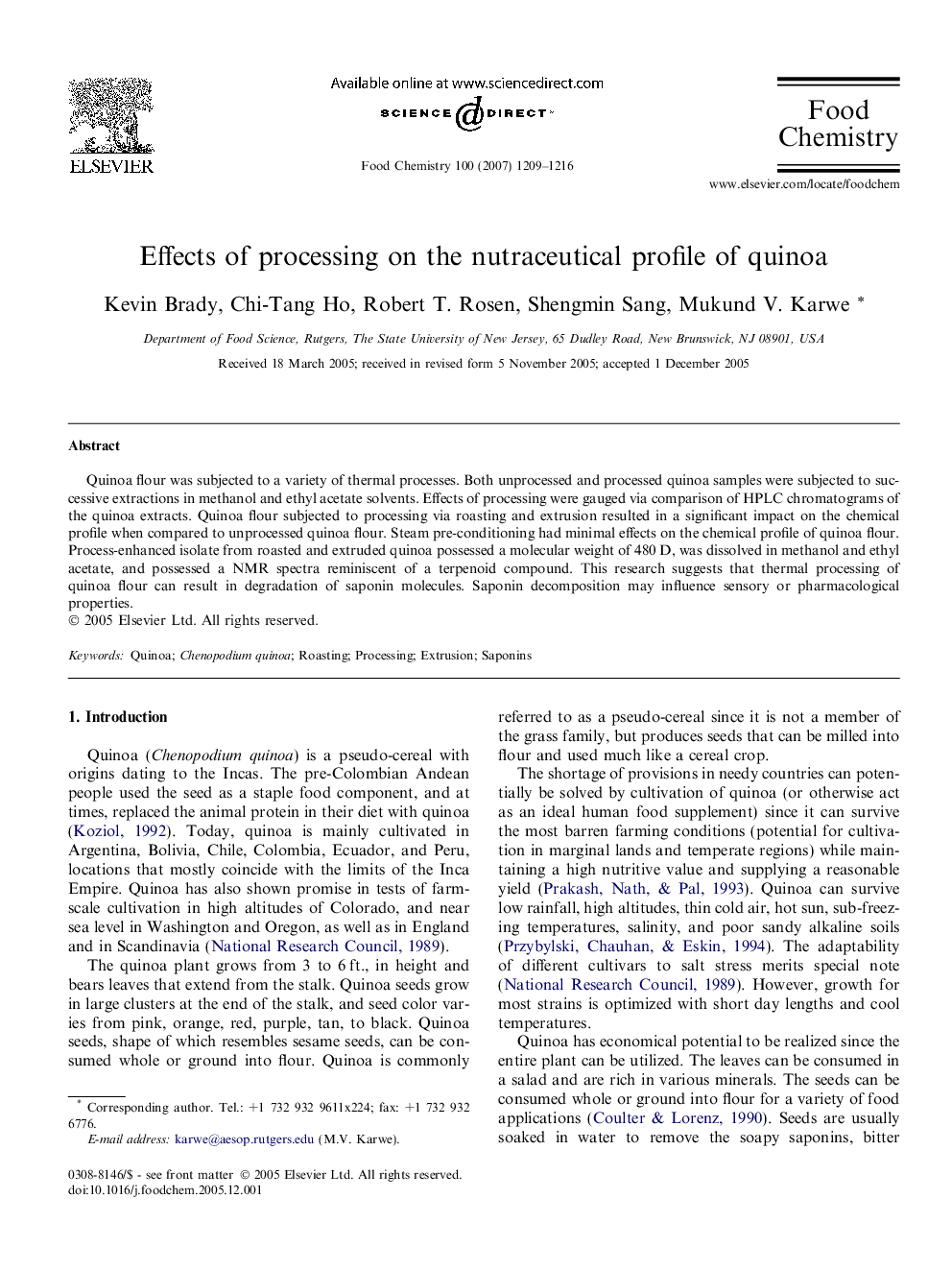| Article ID | Journal | Published Year | Pages | File Type |
|---|---|---|---|---|
| 1190913 | Food Chemistry | 2007 | 8 Pages |
Quinoa flour was subjected to a variety of thermal processes. Both unprocessed and processed quinoa samples were subjected to successive extractions in methanol and ethyl acetate solvents. Effects of processing were gauged via comparison of HPLC chromatograms of the quinoa extracts. Quinoa flour subjected to processing via roasting and extrusion resulted in a significant impact on the chemical profile when compared to unprocessed quinoa flour. Steam pre-conditioning had minimal effects on the chemical profile of quinoa flour. Process-enhanced isolate from roasted and extruded quinoa possessed a molecular weight of 480 D, was dissolved in methanol and ethyl acetate, and possessed a NMR spectra reminiscent of a terpenoid compound. This research suggests that thermal processing of quinoa flour can result in degradation of saponin molecules. Saponin decomposition may influence sensory or pharmacological properties.
